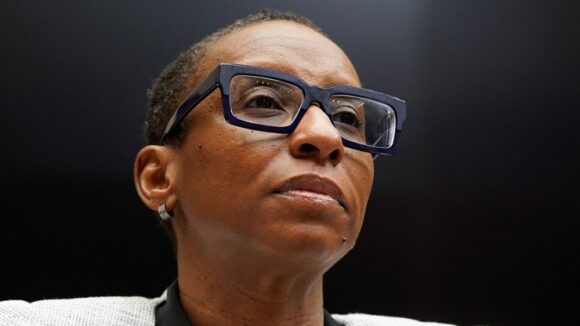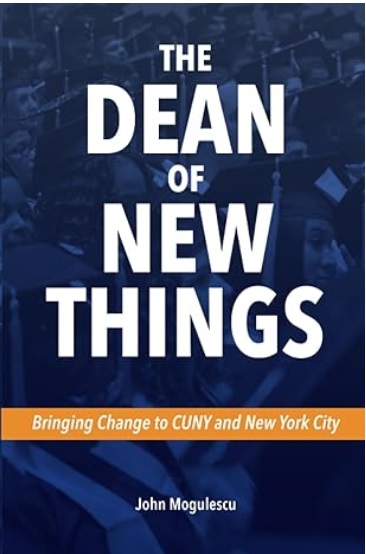Dear Commons Community,
Harvard University President Claudine Gay resigned yesterday after facing intense scrutiny for ambiguous testimony she gave at a congressional hearing on campus antisemitism as well as widening allegations of plagiarism in her academic work.
“It is with a heavy heart but a deep love for Harvard that I write to share that I will be stepping down as president,” Gay said in a letter to the Harvard community. “This is not a decision I came to easily. Indeed, it has been difficult beyond words because I have looked forward to working with so many of you to advance the commitment to academic excellence that has propelled this great university across centuries.”
But after consulting with the university’s board, Gay added, “it has become clear that it is in the best interests of Harvard for me to resign so that our community can navigate this moment of extraordinary challenge with a focus on the institution rather than any individual.” As reported by NBC News.
Gay’s six-month tenure is the shortest in the university’s 388-year history, according to the Harvard Crimson student newspaper. She was the first Black person and the second woman to lead the institution.
The Harvard Corporation, the school’s highest governing body, announced that Alan M. Garber, the school’s provost and chief academic officer, would serve as interim president until a permanent successor is named. The corporation’s members said Gay will return to a faculty position.
Gay drew fierce criticism last month after she and her counterparts at the University of Pennsylvania and the Massachusetts Institute of Technology appeared to sidestep the question of whether calls for the genocide of Jews violate the school’s conduct rules. Penn President Liz Magill resigned days after the widely panned hearing. MIT President Sally Kornbluth has so far not faced major fallout.
Gay then faced allegations of plagiarism in her political science scholarship. The Harvard Corporation ordered an investigation that “revealed a few instances of inadequate citation” but found no violation of Harvard’s standards for research misconduct.
Gay’s job appeared to be secure Dec. 12 after the Harvard Corporation, responding to growing calls for her ouster, released a statement saying its members “reaffirm our support for President Gay’s continued leadership of Harvard University.”
But the questions swirling around Gay’s position did not abate over the holidays.
Billionaire investor Bill Ackman, as well as conservative activists such as Christopher Rufo, continued to put pressure on Harvard via posts on social media. The Washington Free Beacon, a conservative publication, published an unsigned complaint Monday that referred to new allegations of plagiarism, exacerbating the crisis.
Harvard’s communications office did not have comment on the additional plagiarism accusations.
The root of the outcry
The leaders of three of the country’s most prestigious universities were called before the House Committee on Education and the Workforce on Dec. 5 to testify about how their administrations responded to the rise in antisemitism after the Oct. 7 Hamas attack in Israel,
Gay repeatedly condemned both antisemitism and Islamophobia, but critics seized on her legalistic response to a line of questioning from Harvard alumnus Rep. Elise Stefanik, R-N.Y., that went viral on social media. Stefanik asked Gay whether students who call for the genocide of Jews are in violation of the campus code of conduct.
Gay did not answer directly, saying in part: “We embrace a commitment to free expression even of views that are objectionable, offensive, hateful — it’s when that speech crosses into conduct that violates our policies against bullying, harassment, intimidation.”
The answer was met with swift backlash from the White House, lawmakers in both parties and high-profile alumni. NBC’s “Saturday Night Live” parodied the hearing at the start of the Dec. 9 episode.
In an interview with the Harvard Crimson student newspaper after the hearing made national news, Gay apologized for her remarks and said in part: “I got caught up in what had become at that point, an extended, combative exchange about policies and procedures.”
“I failed to convey what is my truth,” she said.
Gay attracted more scrutiny after critics such as Ackman and Rufo highlighted instances of alleged plagiarism in her published academic work, which largely focuses on American political behavior and the role of racial identity in politics.
Harvard’s board said it first learned of the allegations in late October, carried out an “independent review” of her work and found “a few instances of inadequate citation.” The board said Gay was “proactively requesting four corrections in two articles to insert citations and quotation marks that were omitted from the original publications.”
But in the weeks to come, Gay continued to face plagiarism accusations — most recently on Monday, when the Washington Free Beacon published unsigned complaint whose author purported to have found “nearly 50 allegations, including over half a dozen examples never seen before.” NBC News has not independently verified those claims.
Gay has defended her academic work. “I stand by the integrity of my scholarship,” she said in a statement on Dec. 12. “Throughout my career, I have worked to ensure my scholarship adheres to the highest academic standards.”
Harvard history professor Alison Frank Johnson, one of more than 700 members of the faculty who had signed a letter urging administrators to resist calls to remove Gay, said in an interview that she was “flabbergasted” by the president’s exit.
“I was surprised to have this decision made so precipitously and without any proper procedures being followed,” Frank Johnson said in a Zoom interview.
Stefanik cheered the news of Gay’s departure, writing in part in a post on X: “TWO DOWN.”
Gay had to resign for her own sake, for Harvard , and for the higher education profession!
Tony





